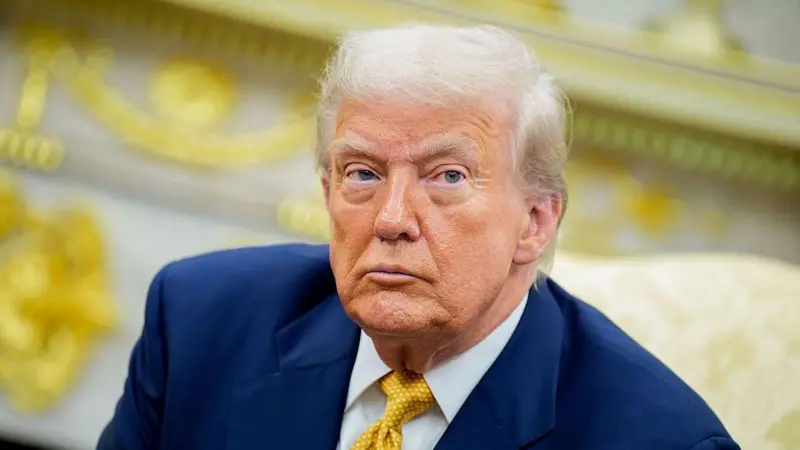
The US President said that court decision will ‘destroy the United States’
A United States Appeals Court ruled on Friday (08/29) that most of the rates imposed by President Donald Trump are illegal, creating potential legal impasse that can directly affect the Republican’s foreign policy agenda.
The court decision may affect rates imposed on several countries, such as Brazil, China, Mexico and Canada.
The decision will only come into force on October 14, giving the possibility that the Trump government resort to the Supreme Court – which will probably happen.
But it does not apply to some types of tariffs, such as those on steel and foreign aluminum, which were imposed on a different legal base.
With a score of 7 to 4, the US Appeals Court for the Federal Circuit rejected Trump’s argument that tariffs would be allowed under an emergency laws for the external economy.
In his social network, Trump criticized the court: “If maintained, this decision will literally destroy the United States of America.”
“Today, a highly partying court said incorrectly that our tariffs should be withdrawn, but they know that the United States of America will win in the end,” he wrote.
“If these tariffs were suspended, it would be a total disaster for the country. It would make us financially weak, and we need to be strong.”
Previously, Trump justified the rates based on the International Emergency Economic Powers Law, which gives the president the power to act against “unusual and extraordinary” threats.
Trump declared a state of national emergency in commerce, arguing that a commercial imbalance is detrimental to US national security.
But the Court of Appeals considered that imposing fares is not part of the president’s power, but of Congress.
In April, Trump called the announcement of tariffs against various countries such as ‘Liberation Day’ | Getty Images
In the 127 -page decision, the court stated that the law “does not mention rates (or any of its synonyms) or have procedural protections that contain clear limits on the president’s power to impose tariffs.”
According to the document, when Congress approved the law in 1977, it is unlikely that the legislators wanted to “grant the president unlimited to impose tariffs.”
“Whenever Congress intends to delegate to the president the authority to impose tariffs, it explicitly does so, whether using unequivocal terms such as tariff and imposed, or through a general structure that makes it clear that Congress is referring to tariffs,” the judges wrote.
The decision is a response to two processes, driven by small businesses and a coalition of American states.
The lawsuits were opened after Trump’s executive orders, which imposed a 10% tariff to all countries, as well as tariffs directed to dozens of countries.
Trump declared that moment as the “Liberation Day” of the United States of unfair trade policies.
Prior to the decision, the White House lawyers argued that the rates would lead to a financial collapse similar to that of 1929, when a break from the stock exchange led to the great depression.
“The president believes that our country would not be able to pay the trillions of dollars that other countries have already pledged to pay, which could lead to financial ruin,” they wrote in a letter.
Experts say the decision may force the country to pay billions in fees to countries that have already signed agreements with the US to minimize tariffs.
In May, the New York -based international trade court stated that tariffs were illegal, but suspended the decision to give time.
It is almost certain that the issue will reach the US Supreme Court, which in recent years has been cautious with presidents trying to implement comprehensive policies not directly authorized by Congress.
Under Joe Biden’s government, the court limited democratic policies that used existing laws to limit greenhouse gas emissions through power plants and forgive students’ student loan debts.
The judges of the Supreme Court, if they agree to analyze the case, may assess whether Trump’s tariff agenda is another example of excess presidential or if it is sufficiently grounded in the law and presidential authority.
Although the Court of Appeals has defeated the President, the White House can comfort itself that only three of the court’s 11 judges were appointed by Republicans.
Of a total of 9 members, the US Supreme Court in turn has six republican nominees – including three that were chosen by Trump himself.
Originally published by BBC News on 08/29/2025
Max Max Max and Anthony Zurcher
Source: https://www.ocafezinho.com/2025/08/31/tribunal-dos-eua-decide-que-maioria-das-tarifas-de-trump-sao-ilegais-o-que-acontece-agora/

